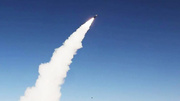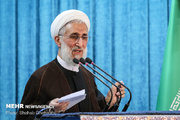The United States believes that giving China access to modern weaponry would disturb the current balance of power in conventional arms between China and Taiwan. The ban on weapons sales to China was imposed in 1989 after the Tiananmen Square incident.
At that time, the European Union joined the United States. Yet, over the years, the situation has changed and now the EU’s interests in China are quite different from those of the United States.
The U.S. insistence on continuing the ban on weapons sales to China is against the EU’s interests.
EU officials believe that the U.S. is pursuing its own interests and trying to monopolize the global trade in arms through its efforts to exclude the EU from the world’s most lucrative weapons markets.
However, the European Union sees no reason to ignore the positive developments in China since 1989 and has broken with the U.S. in the ban on arms sales to China.
The United States’ excuse about disturbing the balance of power between China and Taiwan is not acceptable because the U.S. sells Taiwan highly advanced modern weapons.
EU officials are of the opinion that if there were a real interest in maintaining the balance of power between China and Taiwan, logically, no weapons should be sold to either side.
It seems that there are even more differences between the EU and the U.S. The European Union considers cooperation with China to be in its long-term interests.
In addition, the EU agrees with China’s position on the need for a multilateral world and is opposed to the United States’ unilateralist approach.
Although the European Union is lifting its ban on arms sales to China, the French defense minister recently announced in Washington that the EU would intensely scrutinize and control weapons exports to China. In response, China has said that it does not need the EU’s obsolete weapons.
SA/HG
End
MNA






















Your Comment